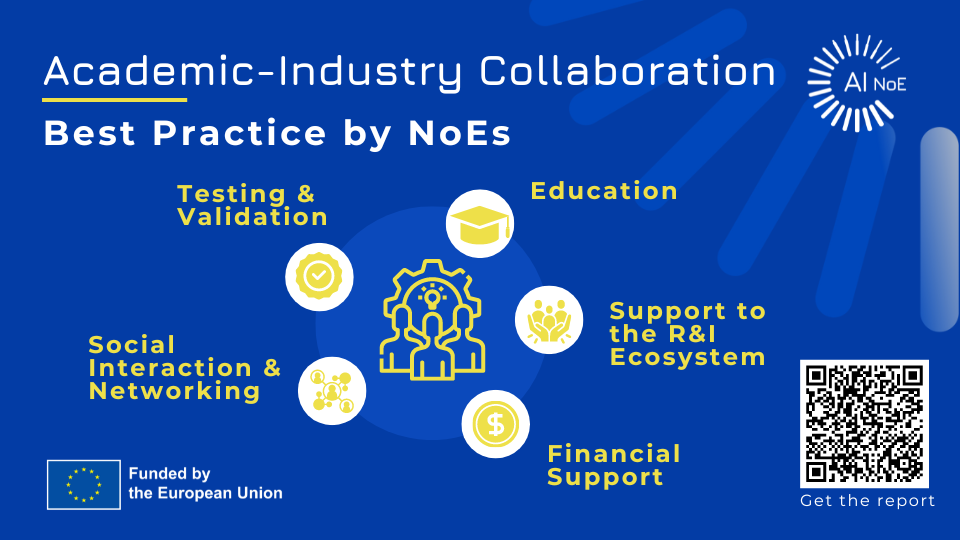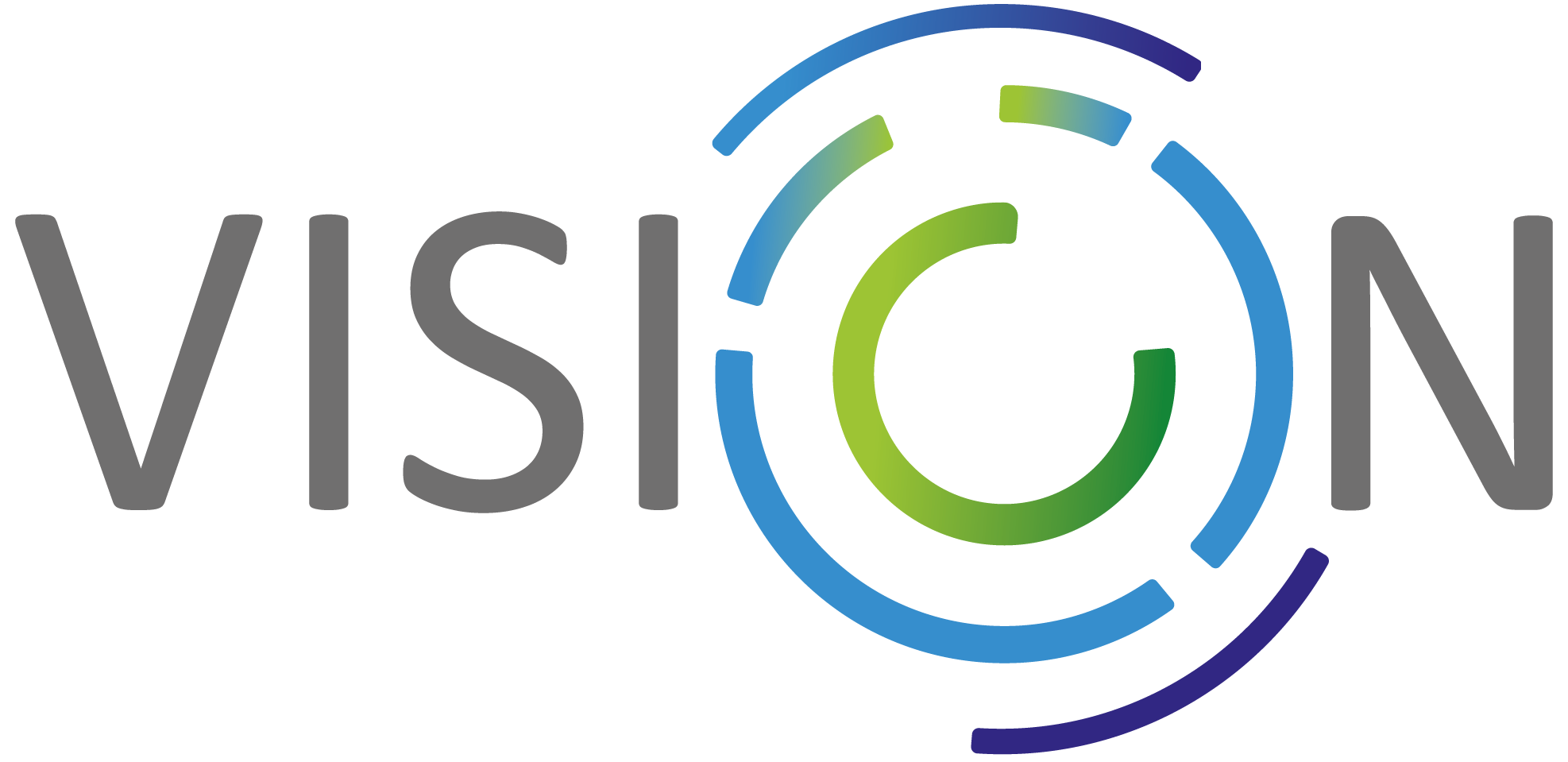Launch of Industry Collaboration Best Practices
Following two years of collaboration under the umbrella of the Cross-network Working Group on Academic-Industry Collaboration, the VISION project, on behalf of the European Networks of Excellence Centres in AI, Data and Robotics – NoEs – has published a report detailing Best Practices for Academic and Industrial collaboration within EU-funded Research & Innovation projects.

These success stories fall into five main categories:
- Testing and validation: co-created use cases, hackathons, or industrial challenges in different industry sectors
- Financial support: dedicated funding for short-term projects with specific objectives, dedicated funding for exchanges, prizes, awards, or connectivity funds
- Social interaction and networking: physical or online events such as conferences, workshops and panel discussions
- Education: industry-oriented PhD programmes, mobility funds, and industry tracks
- Support to the R&I Ecosystem: industrial roadmaps and Strategic Research Agendas, network collaboration, and use of the AI-on-Demand Platform.
Key takeaways from the report
- Meet industry partners where their interests and research objectives converge. Industry tends to be interested in the long term; where is the journey going, what are the next trends, and how to get there.
- There is no such thing as starting from scratch. All R&I projects have to compromise between what the partners are already working on within their institutions and needs defined by the industry.
- Mini projects, open calls, and Theme Development Workshops are easily replicable by future projects and successful ways to interact with industry on specific research objectives for a set amount of time.
- The AI-on-Demand Platform (AIOD) should be the go-to platform to enhance networking and encourage increased communication among stakeholders. Ensuring interoperability with projects and their existing services and platforms is crucial to its success.
In conclusion, Academic and Industry collaboration during the lifetime of these NoE R&I projects has facilitated discussions, developed results and technological advances on specific use cases over short periods of time, and contributed to the strengthening of existing and new relationships between academic and industrial partners.
